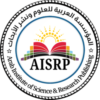الفحص الذاتي
Knowledge, Attitude and Practice of Omani Women on Breast Self-Examination in Oman: A Grounded Theory
Dr. Zalikha Khamis Darwish Al-Marzouqi*1, Nawal Said Al-Surihi1
1 Oman College of Health Sciences | Nursing College | Sultanate of Oman
Abstract: Breast cancer is considered one of the most health-threatening among women, and it has been deemed the greatest deadly type of disease all over the world. Internationally, breast cancer is considered the top cause of morbidity and mortality among women. Breast cancer is number one in many countries and is the second leading cause of death among women in the world. However, breast cancer can be encountered through health education and proper practice of breast self-examination.
Objective: The study aimed to explore knowledge, attitude and practice of breast self-examination among young Omani women and their mothers. Methods: This study used a qualitative design, guided by a grounded theory approach. The researchers communicated with young Omani women and their mothers to study their knowledge, attitude and practice of breast self-examination.
Semi-structured interviews with 15 young Omani women (aged 16-18 years) and their mothers were conducted. This study was conducted in the North Batinah Governorate of Oman at three secondary girls’ schools from February 2022 to October 2022. At the beginning of the data collection,
purposive sampling was used, which relied on inclusion criteria. Then the theoretical sample was used up to the point of data saturation. Variation was considered when recruiting young women and their mothers such as various age groups, various residence places, various schools and various levels of education. Results: Two main categories emerged from the consistent analysis of the data: “Constructing knowledge and attitude” and “Practicing Breast Self-Examination”.
The data revealed that many young women and their mothers had some information on breast self-examination and its importance. They also had positive attitude towards breast self-examination. Many mothers were not practicing breast self-examination because they perceived breast self-examination was not important before the age of 40. Majority of women do not have skills to conduct breast self-examination. Conclusion: Knowing what young women and their mothers know about breast self-examination,
their attitude towards this examination and the practice of breast self-examination would help in the development of a program about breast self-examination in Oman to educate the women about the appropriate age to perform breast self-examination and to develop women’s skills in breast self-examination.
Keywords: Knowledge, Attitude, Practice, Breast, Self-examination.
معرفة ومواقف وممارسات المرأة العمانية في الفحص الذاتي للثدي في عمان: نظرية راسخة
الدكتورة / زليخة خميس درويش المرزوقي*1, نوال سعيد السريحي1
1 كلية عمان للعلوم الصحية | كلية التمريض | سلطنة عمان
المستخلص: يعتبر سرطان الثدي من أكثر الأمراض التي تهدد صحة النساء، وقد تم اعتباره أعظم أنواع الأمراض المميتة في جميع أنحاء العالم. على الصعيد الدولي، يعتبر سرطان الثدي السبب الرئيسي للمراضة والوفيات بين النساء. سرطان الثدي هو رقم واحد في العديد من البلدان وهو ثاني سبب رئيسي للوفاة بين النساء في العالم. ومع ذلك، يمكن مواجهة سرطان الثدي من خلال التثقيف الصحي والممارسة السليمة للفحص الذاتي للثدي. الهدف: هدفت هذه الدراسة إلى استكشاف معرفة واتجاهات وممارسة الفحص الذاتي للثدي بين الشابات العمانيات وأمهاتهن.
الأساليب: استخدمت هذه الدراسة تصميمًا نوعيًا مسترشدًا بنهج نظرية الأرض. تواصل الباحثون مع الشابات العمانيات وأمهاتهن لدراسة معرفتهن وسلوكهن وممارستهن للفحص الذاتي للثدي. تم إجراء مقابلات شبه منظمة مع 15 شابة عمانية (تتراوح أعمارهن بين 16 و18 عامًا) وأمهاتهن. أجريت هذه الدراسة في محافظة شمال الباطنة بسلطنة عمان في ثلاث مدارس ثانوية للبنات في الفترة من فبراير 2022 إلى أكتوبر 2022.
في بداية جمع البيانات، تم استخدام العينات الهادفة، والتي اعتمدت على معايير الاشتمال. ثم تم استخدام العينة النظرية حتى نقطة تشبع البيانات. تم أخذ التباين في الاعتبار عند تجنيد الشابات وأمهاتهن مثل الفئات العمرية المختلفة وأماكن الإقامة المختلفة والمدارس المختلفة ومستويات التعليم المختلفة. النتائج: ظهرت فئتان رئيسيتان من التحليل المتسق للبيانات: “بناء المعرفة والمواقف” و “ممارسة الفحص الذاتي للثدي”.
وكشفت البيانات أن العديد من الشابات وأمهاتهن لديهن بعض المعلومات عن الفحص الذاتي للثدي وأهميته. لديهم أيضا موقف إيجابي تجاه الفحص الذاتي للثدي. لم تكن الكثير من الأمهات يمارسن الفحص الذاتي للثدي لأنهن لاحظن أن الفحص الذاتي للثدي لم يكن مهمًا قبل سن الأربعين. ومعظم النساء لا يملكن المهارات لإجراء الفحص الذاتي للثدي.
الاستنتاج: إن معرفة ما تعرفه الشابات وأمهاتهن عن الفحص الذاتي للثدي، وموقفهن من هذا الفحص وممارسة الفحص الذاتي للثدي من شأنه أن يساعد في تطوير برنامج حول الفحص الذاتي للثدي في عمان لتثقيف النساء حول الفحص الذاتي للثدي. السن المناسب لإجراء الفحص الذاتي للثدي ولتنمية مهارات المرأة في الفحص الذاتي للثدي.
الكلمات المفتاحية: المعرفة، الموقف، الممارسة، الثدي، الفحص الذاتي.
